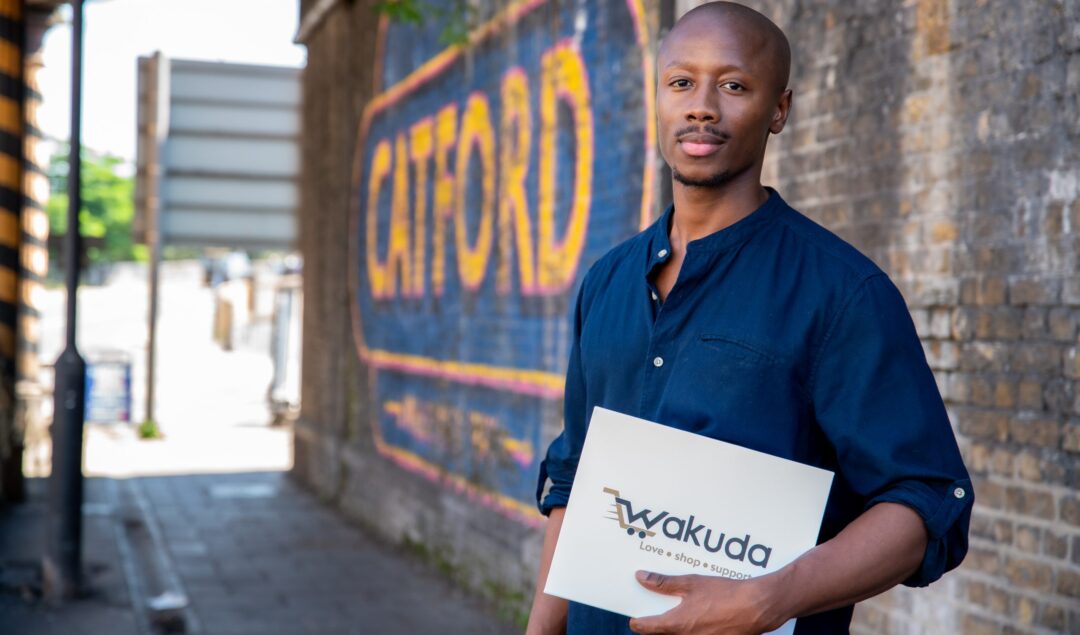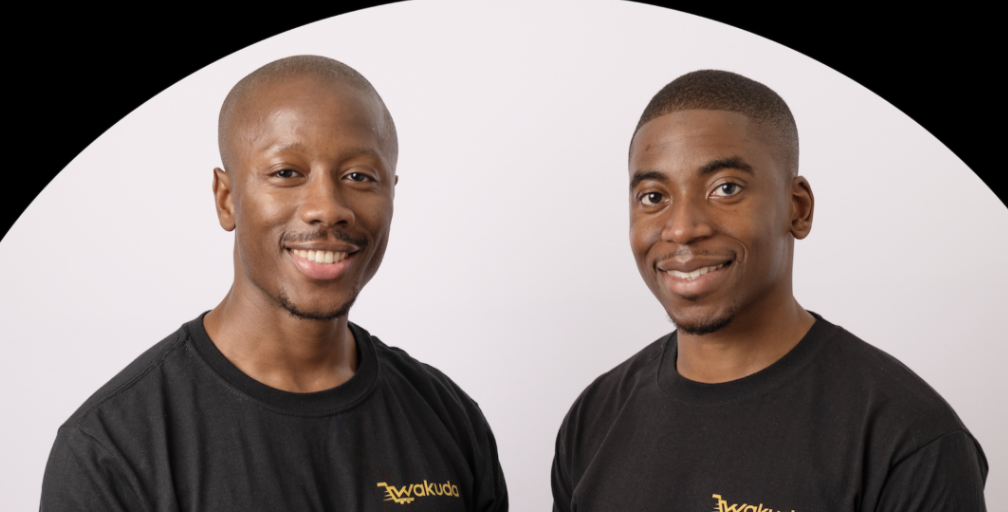Nathaniel Wade, Engineer And StartUp Founder, Talks Budgeting And Preparing To Raise Capital

Nathaniel Wade studied to be an engineer before he dived into the entrepreneurial route. He first started off with a property investment business before going on to launch what he believes will be a leading platform for amplifying Black businesses.
Wade, 30, launched Wakuda, also dubbed the ‘Amazon’ or ‘Etsy’ for Black businesses with his long-time friend Albert Larter back in September 2020 during the pandemic.
This was a time when thousands in the UK were furloughed, some were let go and others were forced to close the doors to their stores and businesses.
The pair from Southwark and Catford respectively launched Wakuda with the aim of helping small and medium-sized Black businesses gain more visibility in the business world and in turn get more customers.
Filled with over 120 small businesses, some being run by just one or two people, shoppers can pick up handwoven masks and headwraps, hand-crafted jewelry, and homemade organic soaps. The model appeals to people who would rather support independents than throw yet more cash at big companies like Amazon.
Macha Macha, a company that makes African print bow ties and origami face masks is also on the list of small businesses featuring on Wakuda’s roster alongside No Sugar, No Cream, a company that hand-draw vibrant prints.

The idea could scale and do amazing things as Black, Asian, and minority ethnic spending power is estimated to amount to £300 billion but we sat down with the founder to better understand how he’s been doing since he and his business partner launched the online marketplace.
Here POCIT sat down with them for a Q&A on the realities of running a business, bootstrapping, and what you need to know before looking for investment.
Pocit: How did you get into tech and launch your own online marketplace – do you have previous experience?
Wade: My background is actually in engineering and property investing as I worked for a property management company prior to this. Albert’s background is in the digital marketing space and he’s also worked with me doing property investing. We’ve known each other for 25 years since our younger days in school. What led us to create Wakuda is that we were both frustrated with the lack of representation and support for black-owned businesses but after the death of George Floyd, we thought about how we could create something meaningful for the community since there was a lot more attention on how people could better support the Black community.
Pocit: So what are the disadvantage and advantages of having a nontechnical background?
Wade: So I’d say the disadvantages have been that it hasn’t been so easy to create what’s been in our heads. We’ve obviously had to use an external developer to do a lot of work and obviously, that comes with extra costs in itself. But I think it’s been good in some ways because we’ve not necessarily limited ourselves to what we want and we’ve had to learn and find ways to make things work – so we’ve really pushed ourselves.
But I feel like it would have been easier if we did have technical expertise within website development as it would have helped us cut costs, do things quicker by ourselves.
Pocit: You obviously launched during the pandemic – that must have been quite difficult?
I think the pandemic brought its own difficulties for us launching because originally we had planned to get out and go and visit Black-owned businesses and kind of onboard them onto the platform. Whereas because of the pandemic we’ve very much had to focus on our digital presence and be very creative around how we would both identify and connect with black-owned businesses online. This had its difficulties but then it was also an advantage that we could connect with a lot more businesses than we would have if we were able to visit them by walking around local areas.
Pocit: Okay let’s get into the financing of things.
Wade: We haven’t taken on any grants – we’re a limited company and they tend to get fewer grants thrown at them. But we are going to be raising investment quite soon. We’ve been bootstrapping all this time because we had full-time jobs we found a way to work around it and use a bit of our income and revenue from other businesses.
Pocit: What have you been doing to prepare for when you’re raising?
Wade: I find one thing that helped with our business is taking part in accelerators around specific funding. So even though I’ve done businesses before within real estate or property – that kind of funding is very different from trying to raise investment for a tech startup in terms of regulations. And one thing that I found really helpful with that was an accelerator, which educated us on all we needed to know about the different ways to fund a business.
We were going to raise quite early in the beginning but what we decided was that we wanted to build out as much as possible before we raise investment.
I think you also need to have a clear vision about where you want the company to be or where you expect it to be in the next few years and let that determine when and how you finance your business because I think that within tech specifically – you see a lot of people raising millions, becoming unicorns, and all these other things but you don’t always have to follow in their footsteps. It’s totally fine to wait and to be able to say that this is what my vision is for this business and being comfortable and confident with that.
Pocit: Good advice – that’ something we’ve heard quite a lot at POCIT from all founders and investors. Why do you need the money, could you bootstrap for longer? Are there enough grants around where you don’t have to give up equity too early But in saying that there are some business ideas that simply won’t scale or reach their goal without VC or angel investors so some companies do need to invest early? Okay, my next question – did you create a budget before launching your startup?
Wade: We didn’t do that at first because we were so new and we weren’t aware of what the cost would really be and because we moved very quickly as well to start to get an MVP we didn’t spend much time on that.
But once we had launched and had a bit more time to slow down – we started working on it. So we sat down and planned what we wanted for the next 12 months, what that would look like financially, and then once we had done that we kind of estimated what the total spend will be.
Pocit: What can we expect from you and Wakuda in the next few years?
Wade: This disparity isn’t exclusive to the UK so we plan to expand the initiative into Europe, Africa and the US, where we have already seen an appetite both in retailers and shoppers alike. We understand these issues exist further afield than the UK. We plan to continue expanding this targeted support. We plan to keep evolving our platform so that Wakuda is known to be the marketplace where shoppers can shop alternatively for quality products by small businesses that they won’t find mainstream.
Prior to going global we aim to become the UK’s leading marketplace where Black-owned businesses can set up and be connected to the rapidly growing audience of ethical consumers.



